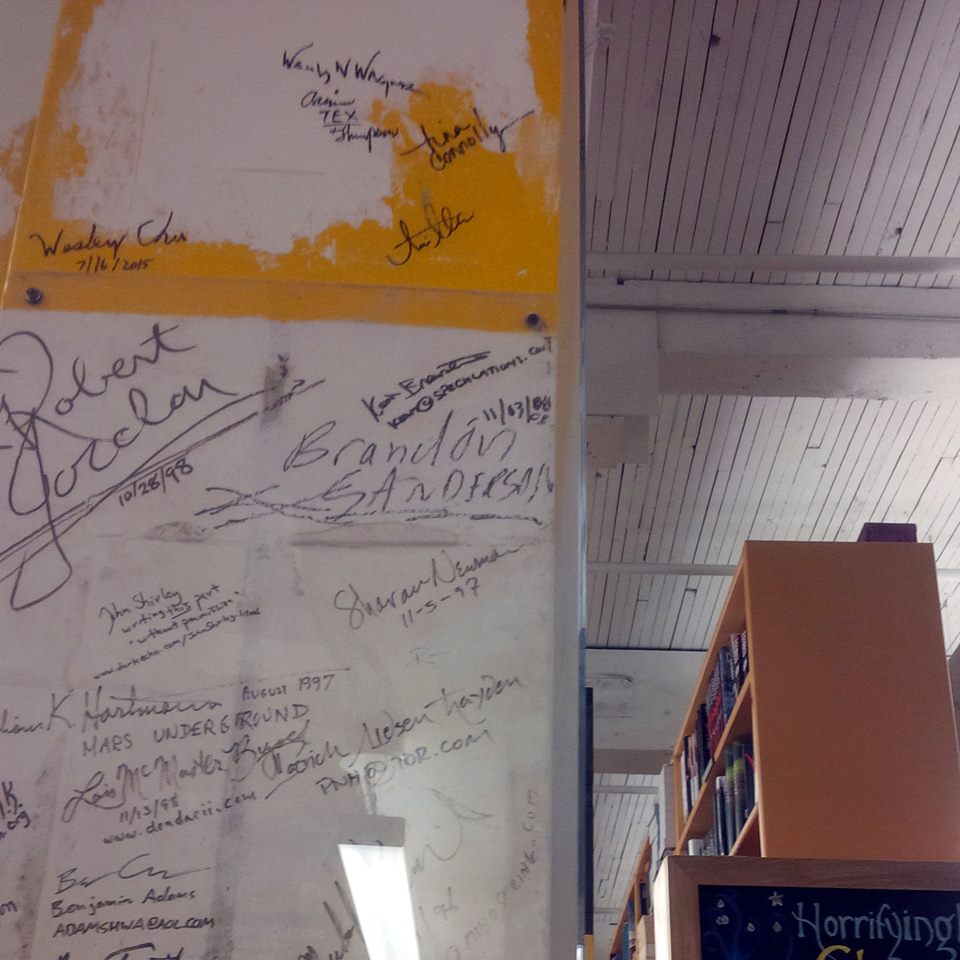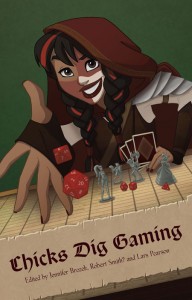As research for the upcoming Women Destroy Fantasy! special issue of Lightspeed, I’m compiling a list of fantasy novels by women that have won major genre fiction awards. Here’s what I have so far:
World Fantasy Award-winning novels by women
The Forgotten Beasts of Eld, by Patricia McKillip (1975)
Watchtower, by Elizabeth A. Lynn (1980)
Thomas the Rhymer, by Ellen Kushner (1991)
Godmother Night, by Rachel Pollack (1997)
The Antelope Wife, by Louise Erdrich (1999)
The Other Wind, by Ursula K. LeGuin (2002)
Ombria in Shadow, by Patricia McKillip (2003)
Tooth and Claw, by Jo Walton (2004)
Jonathan Strange & Mr Norrell, by Susanna Clarke (2005)
Tender Morsels, by Margo Lanagan (2009)
Who Fears Death, by Nnedi Okorafor (2011)
Alif the Unseen, by G. Willow Wilson (2013)
Locus Award for Best Fantasy Novel
Harpist in the Wind, by Patricia McKillip (1980)
The Mists of Avalon, by Marion Zimmer Bradley (1984)
Tehanu: The Last Book of Earthsea, by Ursula K. LeGuin (1991)
Beauty, by Sheri S. Tepper (1992)
Harry Potter and the Prisoner of Azkaban, by J. K. Rowling (2000)
Paladin of Souls, by Lois McMaster Bujold (2004)
The Privilege of the Sword, by Ellen Kushner (2007)
Lavinia, by Ursula K. LeGuin (2009)
Fantasy novels[*] by women that have won the Nebula Award for Best Novel:
The Falling Woman, by Pat Murphy (1988)
Tehanu: The Last Book of Earthsea, by Ursula K. LeGuin (1991)
Paladin of Souls, by Lois McMaster Bujold (2005)
Powers, by Ursula K. LeGuin (2009)
Among Others, by Jo Walton (2012)
[*] If the author attempted to explain the speculative elements of the text via some kind of appeal to science or technology, I called it science fiction and did not include the work.
Works by women writers to receive the Mythopoeic Fantasy Award[*]
The Crystal Cave, by Mary Stewart (1971)
Red Moon and Black Mountain, by Joy Chant (1972)
The Song of Rhiannon, by Evangeline Walton (1973)
The Hollow Hills, by Mary Stewart (1974)
The Firelings, by Carol Kendall (1983)
When Voiha Wakes, by Joy Chant (1984)
Cards of Grief, by Jane Yolen (1985)
Thomas the Rhymer, by Ellen Kushner (1991)
A Woman of the Iron People, by Eleanor Arnason (1992)
Briar Rose, by Jane Yolen (1993)
The Porcelain Dove, by Delia Sherman (1994)
Something Rich and Strange, by Patricia A. McKillip (1995)
Waking the Moon, by Elizabeth Hand (1996)
The Wood Wife, by Terri Windling (1997)
The Djinn in the Nightingale’s Eye, by A.S. Byatt (1998)
The Innamorati, by Midori Snyder (2001)
The Curse of Chalion, by Lois McMaster Bujold (2002)
Ombria in Shadow, by Patricia A. McKillip (2003)
Sunshine, by Robin McKinley (2004)
Jonathan Strange & Mr. Norrell, by Susanna Clarke (2005)
Solstice Wood, by Patricia A. McKillip (2007)
Orphan’s Tales, by Catherynne M. Valente (2008)
Flesh and Spirit and Breath and Bone, by Carol Berg (2009)
Lifelode, by Jo Walton (2010)
Redemption in Indigo, by Karen Lord (2011)
The Uncertain Places, by Lisa Goldstein (2012)
Digger, vols. 1-6, by Ursula Vernon (2013)
[*] From 1971-1992, the Mythopoeic Society made no distinction between adult and youth fiction. In 1992 the Mythopoeic Society began giving two separate awards, the Mythopoeic Fantasy Award for Adult Literature and the Mythopoeic Fantasy Award for Children’s Literature. I have included only the Adult winners for the time being.

